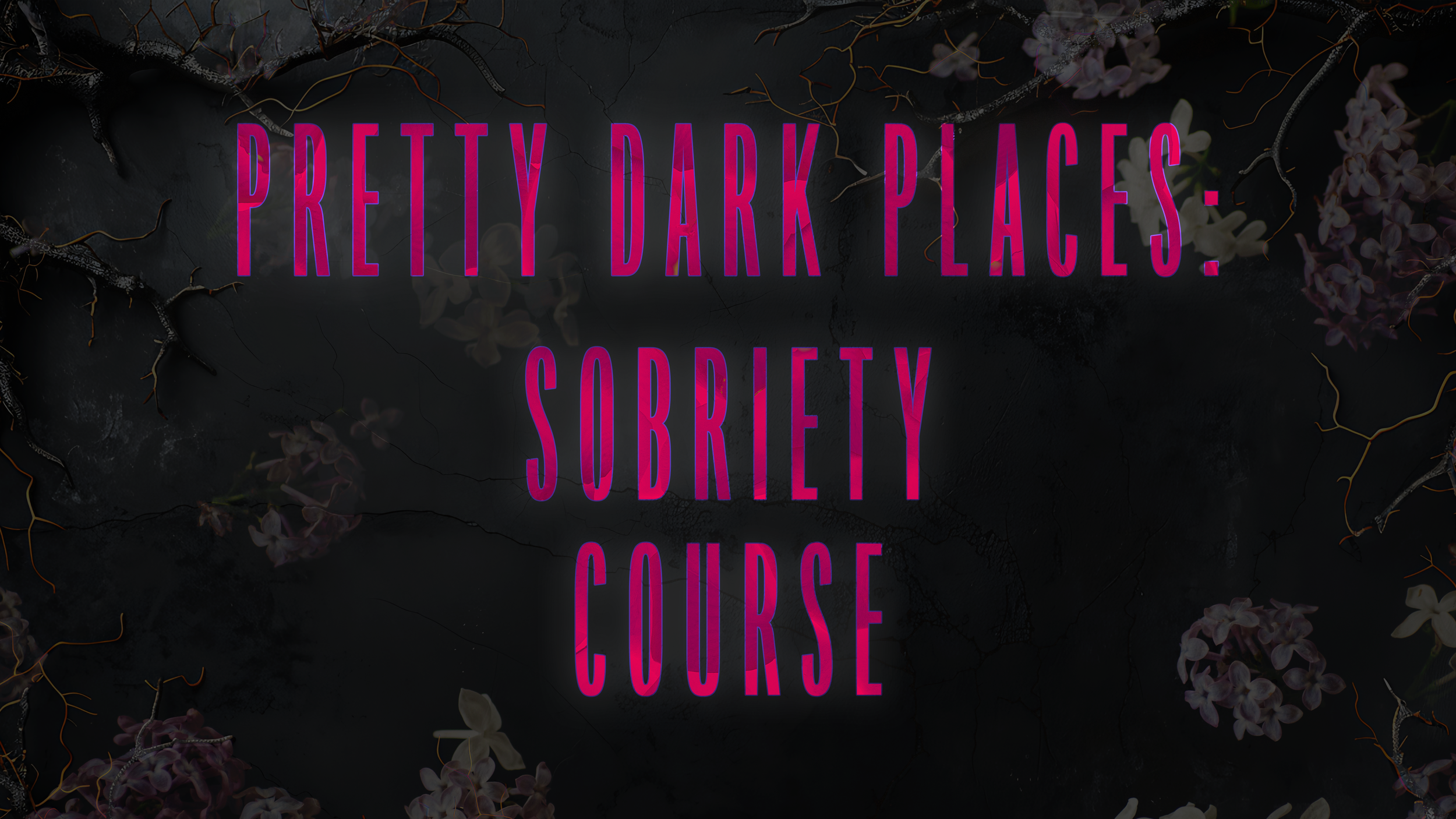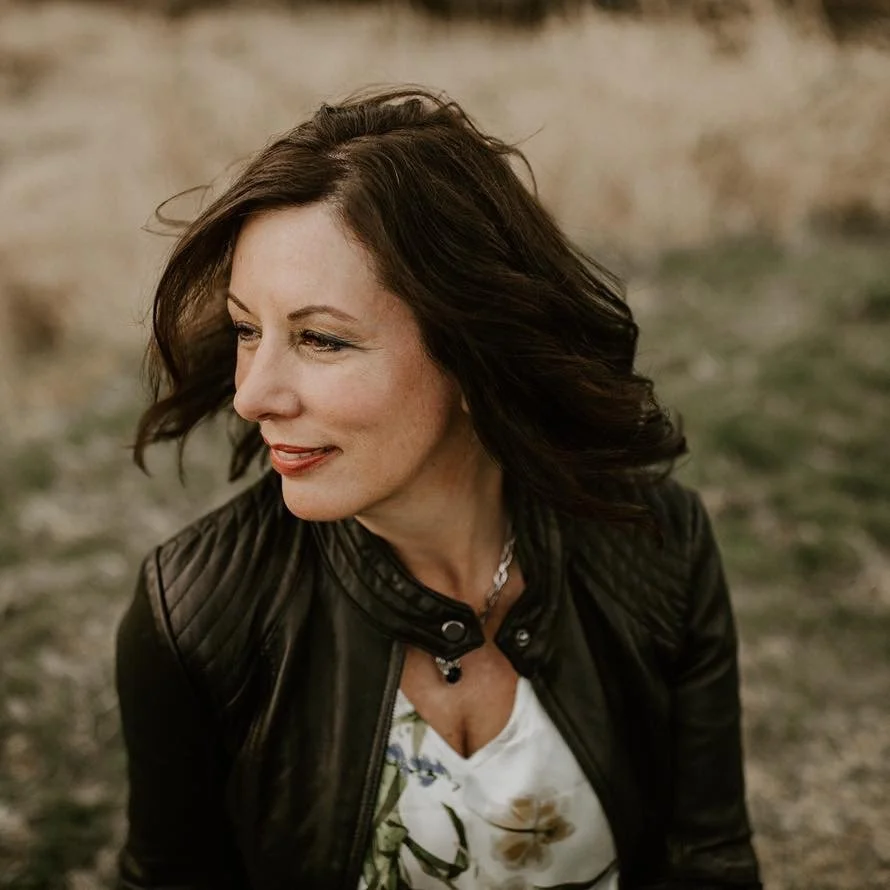
Part of my recovery journey has involved discovering my need to help facilitate and support others’ journeys toward recovery. My own recovery and sobriety have brought tremendous gifts for which I am eternally grateful. This course is grounded in my deep gratitude and need to help others who are experiencing some of the same challenges that I did. My course is designed to help support your recovery and provide you with all of the insights and learning I achieved on my own path.
What you’ll get
-
✺
10 original modules consisting of four lessons each; each module is designed to impart key lessons for successful recovery.
-
✺
For-life, anytime access to some of the most helpful resources available for maintaining your recovery and sobriety.
-
✺
Chrystal's unique approach to maintaining recovery through both practical exercises and theoretical knowledge applicable to anyone.
-
✺
Chrystal's hand-selected resources, including books, podcasts, and other materials designed to support your ongoing recovery.
-
✺
An effective and empathetic approach to recovery that prioritizes advice you can tailor to your unique situation and needs.
-
✺
Invaluable perspective from an accredited coach who’s successfully navigated the many challenges associated with recovery.
What’s Inside
Module 1: Understanding Your Story
Lesson 1-1: The Roots of Shame
Recovery begins with understanding. Before we can heal from addiction, we need to understand where it comes from. This isn't about blaming others or excusing our behavior. Rather, it's about recognizing the roots of our shame and how those roots grew into the patterns that brought us here.
Lesson 1-2: Trauma's Hidden Impact
Many people in recovery minimize their own trauma. They think, "My childhood wasn't that bad" or "Other people had it worse." This minimization is actually a symptom of the problem—you learned to invalidate your own experience.
Lesson 1-3: The Addiction-Shame Cycle
The Addiction-Shame Cycle is one of the most powerful forces underlying addiction. Once you understand this cycle, you can interrupt it. Once you address the root cause rather than just the symptoms, lasting recovery becomes possible.
Lesson 1-4: Your Personal Inventory
This final lesson in Module 1 brings together everything we've explored. You'll create a written inventory of your own trauma, shame, and addictive patterns.
Module 2: The Reality of Recovery
Lesson 2-1: Debunking Recovery Myths
Many people enter recovery expecting that once they stop using, the hardest part is over. This misconception sets people up for devastating shame when they experience setbacks.
Lesson 2-2: Taking Responsibility
One of the most challenging aspects of recovery is learning to hold yourself accountable without drowning in blame and shame. There's a delicate balance here that many people struggle to find.
Lesson 2-3: The Courage to be Honest
If I had to identify the single biggest barrier to recovery, it would be this: lying to yourself. We lie about how bad things are, about whether we can control our use, about whether we really need help. These lies keep us sick.
Lesson 2-4: Rock Bottom and Turning Points
There's a common belief that you have to "hit rock bottom" before recovery is possible. While dramatic breaking points do happen, this idea is actually harmful.
Module 3: Connection as Medicine
Lesson 3-1: Finding Your Higher Power
Recovery requires acknowledging something greater than yourself. This doesn't have to be God in the traditional sense—it can be the Universe, nature, love, community, or any force that connects you to something larger and more enduring than your individual existence.
Lesson 3-2: Building Your Support System
No one recovers alone. The isolation that feeds addiction must be replaced with authentic human connection. But not all relationships support recovery—some actively undermine it.
Lesson 3-3: Healing Family Relationships
Family relationships are often the most complicated terrain in recovery. These are the people who knew you before addiction, who may have their own trauma, who often don't understand what you're going through.
Lesson 3-4: The Humanity in Recovery
Family relationships are often the most complicated terrain in recovery. These are the people who knew you before addiction, who may have their own trauma, who often don't understand what you're going through.
Module 4: Alternative Healing Pathways
Lesson 4-1: Understanding Plant Medicine
Plant medicine refers to the ceremonial and therapeutic use of psychoactive plants that have been used for centuries by Indigenous cultures for healing, spiritual growth, and transformation. In the context of addiction recovery, plant medicines like ayahuasca, psilocybin, and others have shown promise in helping people process trauma, gain insight into their patterns, and break free from addictive behaviors.
Lesson 4-2: Other Healing Modalities
Recovery doesn't follow a single path. Various modalities can support your healing.
Lesson 4-3: Integration Work
A powerful revelation during a ceremony or therapy session feels transformative in the moment. But without integration, insights fade and old patterns return. Integration is the bridge between insight and lasting change.
Lesson 4-4: Making Informed Decisions
Making informed decisions about alternative approaches to healing is critical. Early recovery often requires more traditional structure. Later stages may have more room for exploration.
Module 5: Confronting Your Dark Places
Lesson 5-1: When Memories Surface
Our minds are designed to protect us. When experiences are too overwhelming for us to process—especially in childhood when we lack the emotional tools and context to make sense of trauma—our psyche may repress those memories. This isn't weakness; it's survival.
Lesson 5-2: Anger and Unresolved Rage
Anger is one of the most commonly suppressed emotions, particularly for those who experienced trauma in childhood. Many of us learned that expressing anger was dangerous, unacceptable, or would result in abandonment or punishment.
Lesson 5-3: Forgiveness Work
Forgiveness is perhaps one of the most misunderstood concepts in recovery and healing work. Let's be clear about what it is and isn't.
Lesson 5-4: Sitting with Discomfort
One of the paradoxes of healing is this: the pain we run from follows us, but the pain we face eventually dissolves.
Module 6: Practical Tools for Daily Life
Lesson 6-1: Identifying and Managing Triggers
Triggers are the people, places, emotions, situations, or sensory experiences that create cravings or urges to use substances. They're unique to each person, shaped by your individual history and experiences with addiction.
Lesson 6-2: Building New Coping Mechanisms
Substances served a purpose in your life—they helped you cope with stress, pain, boredom, or difficult emotions. Recovery isn't just about stopping substance use; it's about finding healthier ways to meet those underlying needs.
Lesson 6-3: Dealing with Cravings
Cravings are temporary. They feel overwhelming, but they peak and then pass—usually within 15-30 minutes. Your job isn't to eliminate cravings completely; it's to survive them without using.
Lesson 6-4: Creating Structure
Chaos is the enemy of recovery. Addiction thrives in disorder, uncertainty, and lack of structure. Recovery requires creating predictable, stable patterns that support sobriety.
Module 7: Codependency and Relationship Patterns
Lesson 7-1: Understanding Codependency
Codependency is a pattern of relating to others that stems from childhood experiences of trauma, abandonment, or dysfunction. When we grow up in environments where our emotional needs aren't consistently met, we often develop survival strategies that seem helpful in childhood but become problematic in adult relationships.
Lesson 7-2: Identifying Toxic Relationships
Not all relationships are equal in their impact on your wellbeing and recovery. Some relationships—while they may involve love or history—are fundamentally toxic and undermine your healing. Recognizing these patterns is essential.
Lesson 7-3: Setting Boundaries
Boundaries are not walls. They're not about punishing others or being rigid. Boundaries are simply clear information about where you end and another person begins—about what's acceptable and what's not in how you're treated.
Lesson 7-4: Choosing Different Partners
Once you understand codependency, recognize toxic patterns, and begin setting boundaries, the question becomes: How do you choose differently going forward?
Module 8: Faith, Spirituality, and Purpose
Lesson 8-1: Your Spiritual Path
Finding your own spiritual path is deeply personal work that no one else can do for you. Whether you connect with organized religion, personal spirituality, or find meaning through other frameworks, what matters most is developing a relationship with something greater than yourself.
Lesson 8-2: Prayer and Surrender
Surrender is often misunderstood. It doesn't mean giving up—it means releasing the illusion of control over things you cannot control. As Chrystal learned in her darkest moment on her kitchen floor, surrender creates space for help to arrive.
Lesson 8-3: Finding Purpose in Pain
One of recovery's greatest gifts is the ability to transform your suffering into meaning. Your pain doesn't define you, but how you respond to it shapes who you become.
Lesson 8-4: Living with Integrity
Recovery offers the opportunity to live authentically—to close the gap between who you are and who you want to be.
Module 9: Rebuilding After Consequences
Lesson 9-1: Facing What You've Lost
Recovery requires honest acknowledgment of what addiction has cost you. This isn't about dwelling in regret or self-punishment—it's about clear-eyed acceptance that allows you to move forward authentically.
Lesson 9-2: Repairing Relationships
Addiction damages relationships in profound ways. Broken promises, lies, manipulation, neglect, and betrayal leave deep wounds. Repairing these relationships—when possible—requires patience, humility, and realistic expectations.
Lesson 9-3: Rebuilding Trust
Trust, once broken, takes time to rebuild. You cannot demand or rush it. You can only earn it through consistent behavior over time.
Lesson 9-4: Financial and Legal Recovery
Addiction often leaves financial and legal wreckage. Addressing these consequences requires practical planning, patience with yourself, and willingness to face uncomfortable realities.
Module 10: Creating Your Sustainable Future
Lesson 10-1: Defining Success in Recovery
Recovery is deeply personal. What works for one person may not work for another, and what success looks like varies tremendously from person to person. This lesson is about helping you define what successful recovery means for you specifically.
Lesson 10-2: Building Your Personal Recovery Plan
A recovery plan is your personalized guide for maintaining sobriety and continuing to grow. It combines insights from all the previous modules into a practical, actionable roadmap.
Lesson 10-3: Finding Beauty in the Darkness
This lesson is about making meaning from your suffering—finding the gifts hidden in your darkest moments.
Lesson 10-4: Your Commitment Going Forward
Recovery is not a destination—it's an ongoing practice. This final lesson is about making a commitment to yourself and your future.
Take charge of your recovery today.
For more information, please see the terms and conditions, as well as our full refund policy.
✺ Frequently asked questions ✺
-
This program addresses the root causes, not just the symptoms of addiction. Recovery isn't linear, and previous attempts weren't failures; they were part of your journey. I personally experienced multiple relapses before achieving lasting sobriety.
-
No. While I do share my experiences with plant medicine, the program teaches multiple pathways to recovery. Plant and similar medicines are presented as options, not requirements.
-
While the goal is sobriety, I meet you where you are. The workbook and early modules focus on understanding your patterns. However, for your safety, I recommend medical supervision if you're physically dependent on substances.
-
While I certainly respect all recovery paths, this program specifically addresses trauma-based addiction. I focus on healing shame, understanding childhood patterns, and rebuilding without requiring a specific religious framework (though spirituality is welcomed in whatever form works for you).
-
Exploring trauma can bring up difficult emotions. The program includes grounding techniques, crisis resources, and emphasizes going at your own pace. If you're in acute crisis, please seek immediate professional support first.
-
Trauma isn't just major events—it includes emotional neglect, having to be the "responsible one" too young, witnessing parental conflict, or feeling chronically unsafe. If you're using substances to cope with emotional pain, this program is for you.


